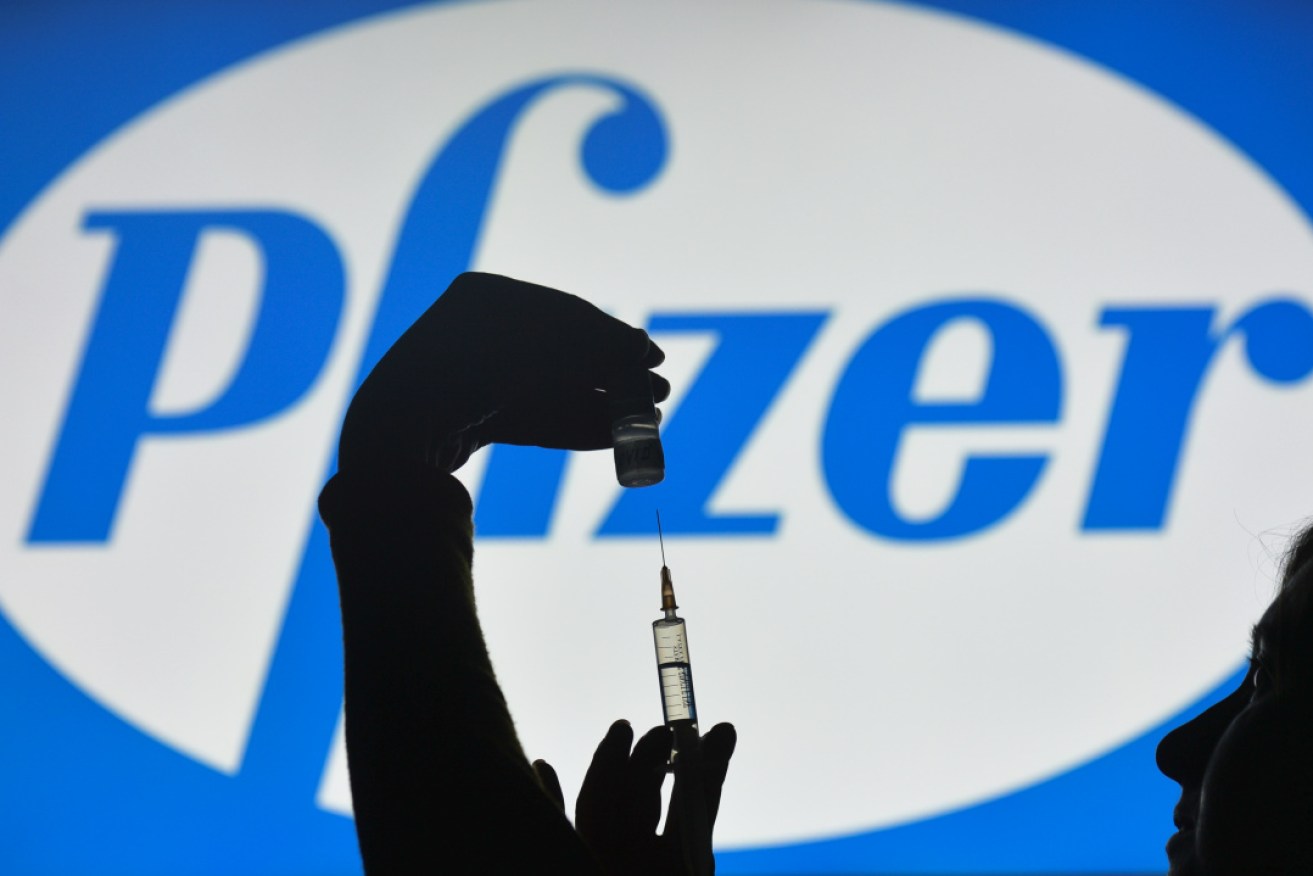Health workers, aged-care residents to get Pfizer jabs following delivery


The TGA has reportedly approved the Pfizer vaccine's use in younger teenagers. Photo: Getty
Australia’s first batch of the world-leading Pfizer/BioNTech coronavirus vaccine landed in Sydney on Monday, marking the start of our national rollout program.
It came as new research underscored just how effective the vaccine is in preventing infected people from developing the symptoms of COVID-19.
Health Minister Greg Hunt said the government was on track to meet its ambitious goal of four million vaccinations by early April, despite Australia starting its inoculation program months after 77 other countries, including the United States, Britain and the European Union.
“The eagle has landed,” Mr Hunt said within minutes of the Singapore Airlines flight carrying 142,000 Pfizer doses touching down on Monday.

The first Pfizer shipment arrived in Australia on Monday.
But it’s not straight forward: Unlike most other coronavirus vaccines, the Pfizer jab must be kept between -60 and -90 degrees Celsius.
Transporting it to Australia was one challenge. The next will be keeping it at the proper temperature.
The federal government is due to release 80,000 doses to states and territory governments next week to begin the rollout of Phase 1a of the federal vaccine roadmap.
It is expected state leaders will share 50,000 of the doses for quarantine workers and frontline health workers, while the remaining 30,000 will go to staff and residents in aged care.
The Pfizer jab requires two doses, given 21 days apart.
About 60,000 of Australia’s first shipment will be held back, for second doses to be administered later.
Pfizer will be the primary vaccine for phase 1a of the vaccine rollout, which includes quarantine workers, frontline health workers, and disability and aged-care staff and residents.
Phase 1a vaccinations will be supplemented by jabs from Oxford University/AstraZeneca.
It is expected most Australians will receive the Oxford University/AstraZeneca vaccine, not Pfizer.
‘Extremely effective’
A new Israeli study has found more than nine in 10 people symptomatic with COVID-19 were less likely to develop severe illness from the virus after taking both doses of the Pfizer vaccine.
The study by Israeli health fund Clalit comes about two months after Pfizer found its two-dose vaccine was 95 per cent effective at preventing coronavirus symptoms.
Preliminary results from Clalit showed a 94 per cent drop in symptomatic cases and a 92 per cent drop in serious cases.
The health maintenance organisation had analysed a total of 1.2 million people – 600,000 of who had received two doses of the Pfizer jab and the same number who had not.
“It’s now unequivocally clear that Pfizer’s coronavirus vaccine is extremely effective in real life a week after the second dose, just as was found in the clinical trials,” Professor Ran Balicer, founding director of the Clalit Research Institute said.
The study found the jab when taken twice, was equally effective for all age groups.
Although the country’s rate of infection continues to be very high, almost 40 per cent of Israel’s population has now been vaccinated.








